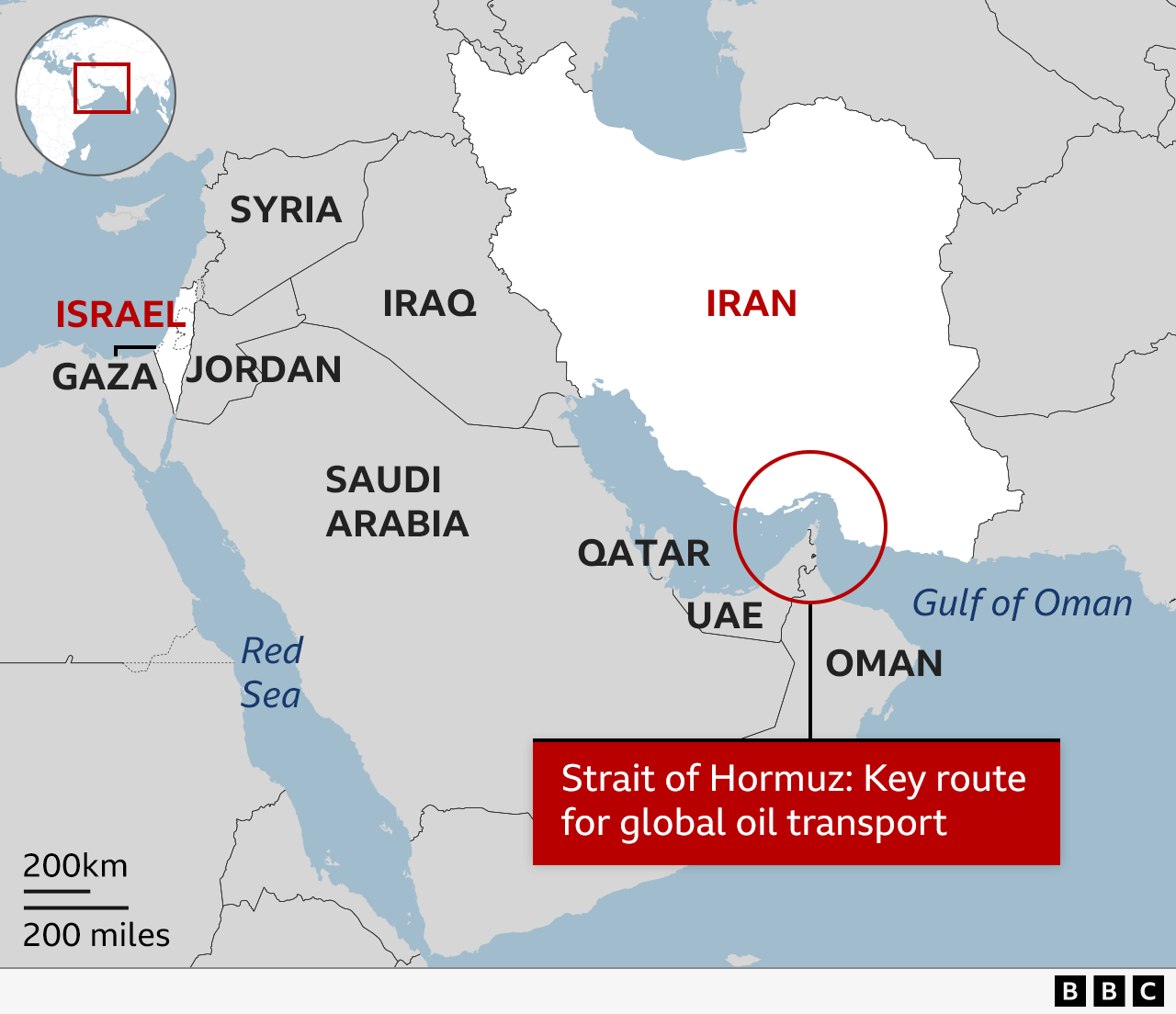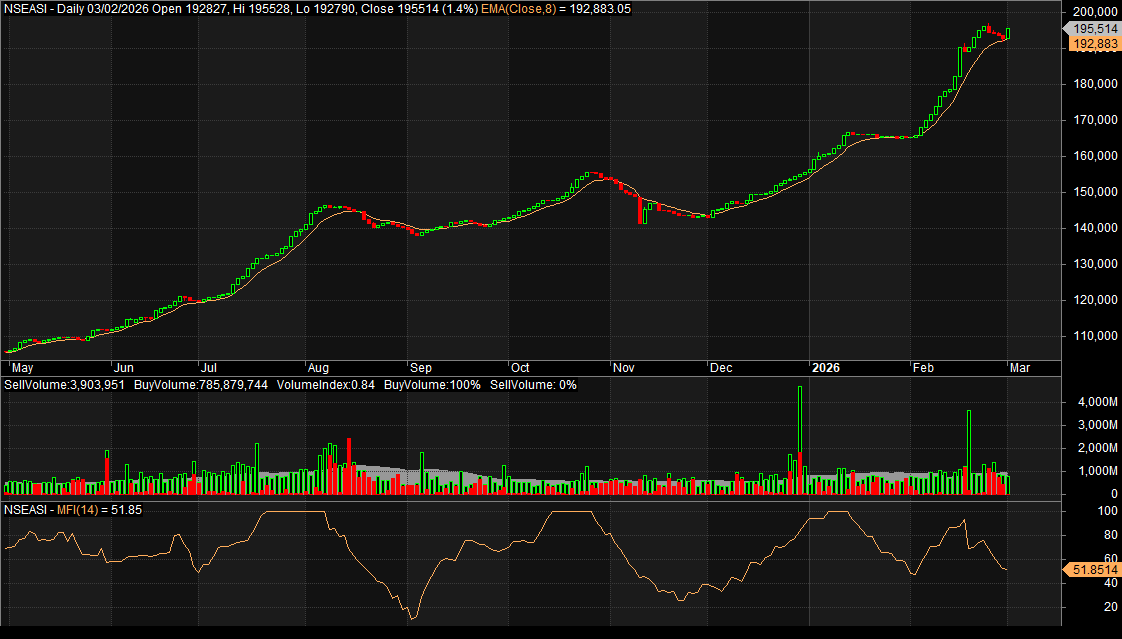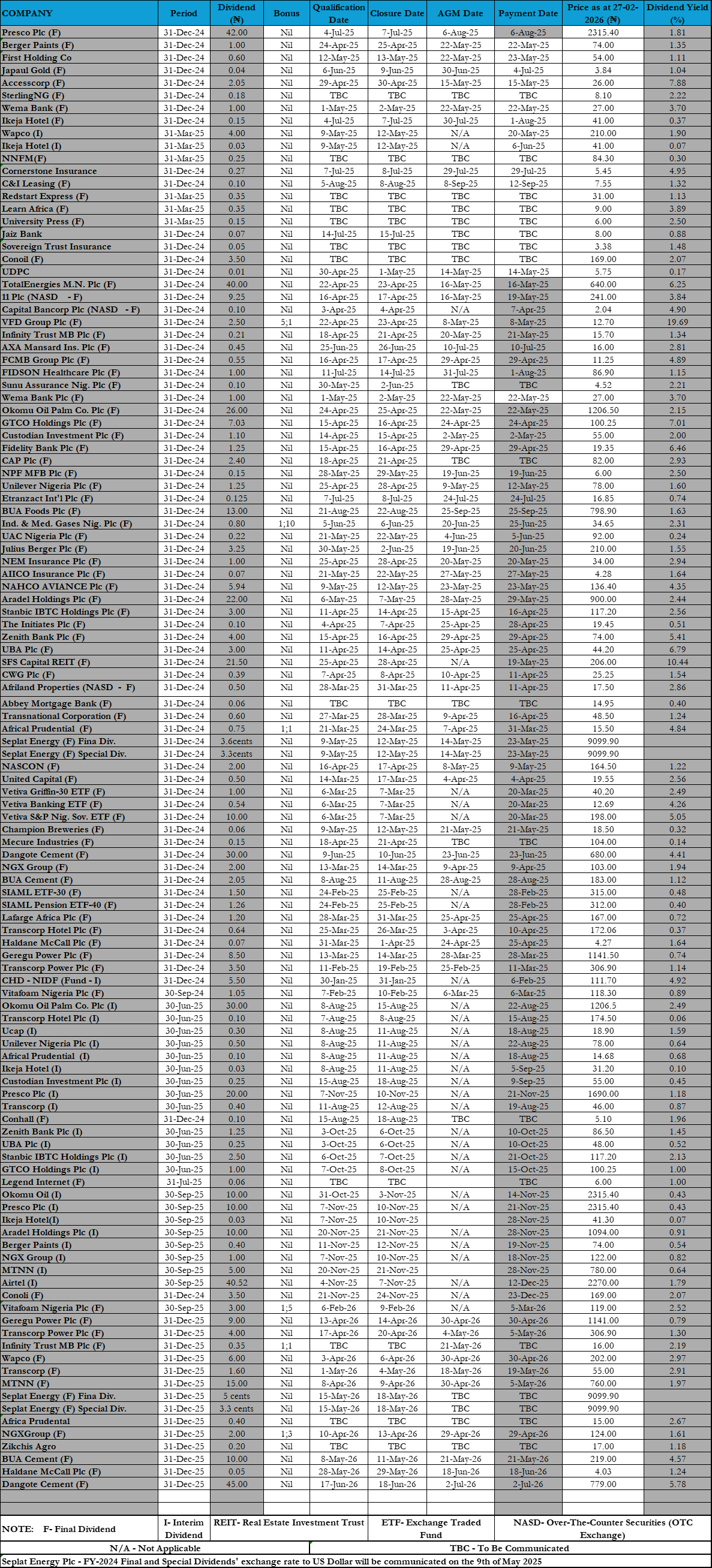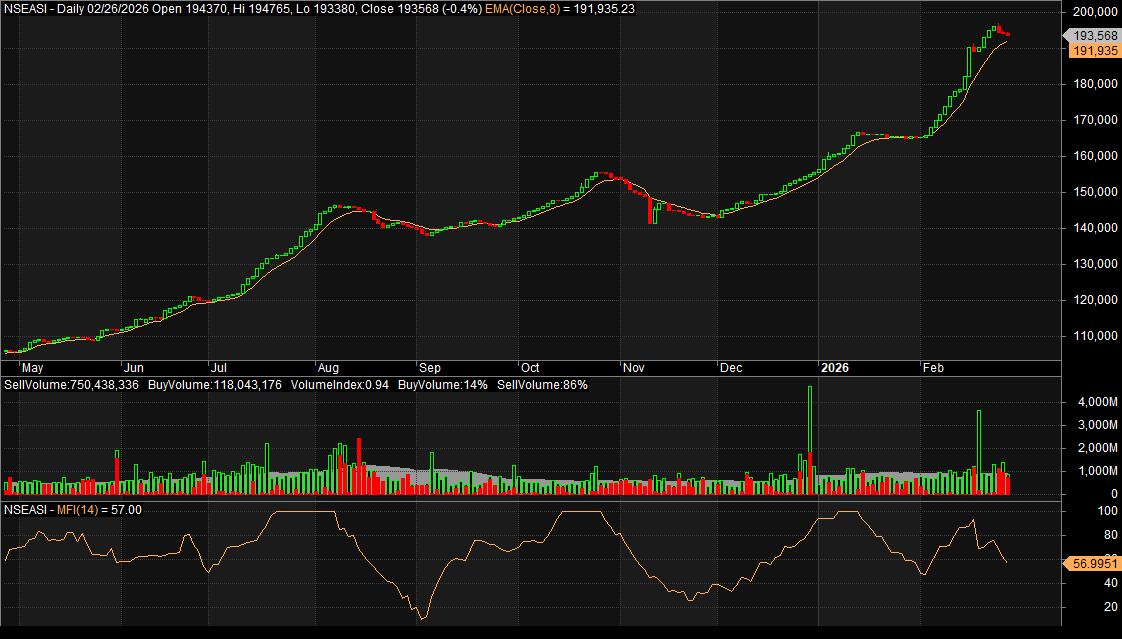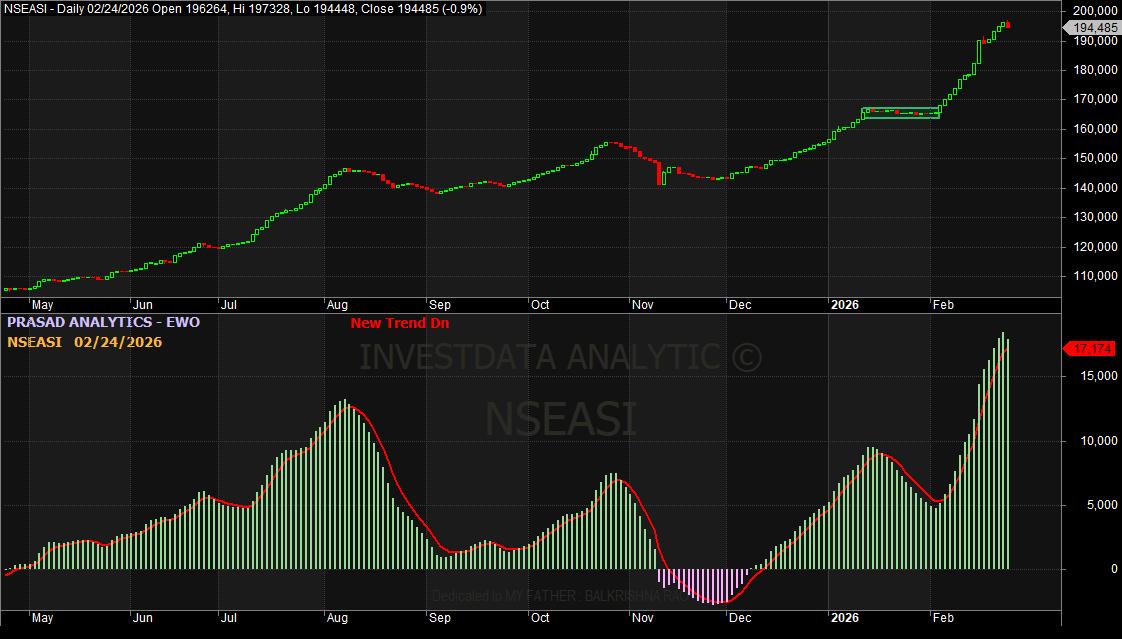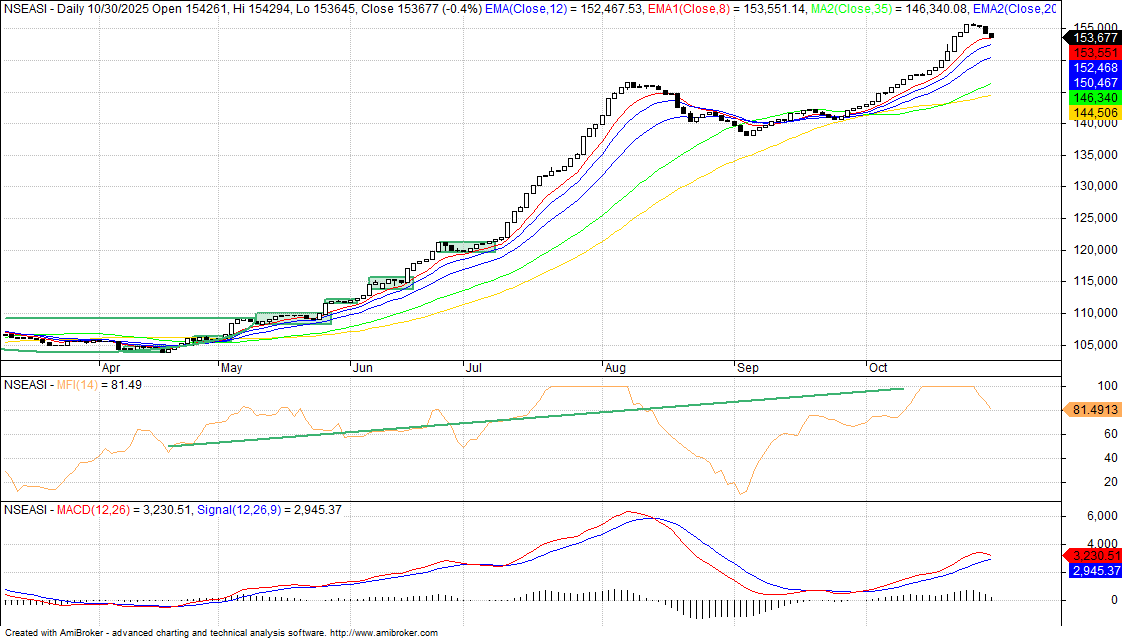
Market Update For October 30, 2025
The Nigerian Exchange (NGX) closed Thursday’s trading session in the red, extending its bearish run for the third consecutive day as renewed sell pressure persisted across the banking, consumer, and industrial goods sectors. The negative sentiment in the domestic bourse reflected profit-taking activities, weak risk appetite, and macroeconomic headwinds that continued to weigh on investor confidence despite strong year-to-date performance.
The sustained decline came amid a broader cautious mood in the financial market, as elevated interest rates in the fixed-income space attracted liquidity away from equities. Market analysts observed that investors are locking in profits from earlier rallies, particularly in blue-chip counters that have recorded significant price appreciation this year. The market’s weakness was further compounded by concerns around tightening monetary policy, inflationary pressure, and slow corporate earnings momentum, which collectively dampened buying sentiment.
Investor behavior throughout the session was largely defensive, as portfolio managers rotated positions into safer assets and short-duration instruments. This trend was evident in the relatively high turnover volume, suggesting that while sentiment remains weak, market participation remains vibrant as investors continue to reposition their portfolios in anticipation of year-end adjustments.
Trading activity saw a remarkable improvement, with the total volume traded increasing by 75.73% to 795.86 million units, valued at ₦35.11 billion, across 28,944 deals. The surge in volume and value indicated that institutional investors are still active, albeit with a more cautious approach. WEMABANK dominated the activity chart, accounting for 38.42% of total volume after exchanging 305.74 million units. The stock continues to attract attention from retail and institutional investors alike, buoyed by its improved earnings performance, strong digital banking penetration, and attractive valuations. GTCO followed with 12.30% of the day’s traded volume, while ASOSAVINGS accounted for 9.47%, maintaining strong momentum after breaking its 52-week high.
In value terms, GEREGU Power Plc topped the chart with ₦8.77 billion worth of shares traded, representing 24.97% of total market value. The company, one of Nigeria’s largest private power generation firms, remains a favorite among institutional investors due to its stable revenue stream, consistent dividend payouts, and leadership position in the energy sector. GTCO and WEMABANK followed closely, reflecting continued dominance of financial stocks in market turnover.
From a technical standpoint, the NGX remains within a corrective channel, with the All-Share Index (ASI) trading below both its 20-day and 50-day moving averages—a clear indication of short-term bearish momentum. The Relative Strength Index (RSI) also hovers near the oversold region, signaling that several large-cap stocks may be approaching attractive entry points. Market analysts, however, caution that the correction could persist in the near term until new catalysts emerge. Key support is seen around the 153,000-point level, while resistance lies near 155,000 points. A decisive break below current levels could open further downside, but oversold conditions may trigger technical rebounds driven by bargain hunters.
Looking ahead, the market’s direction in the short term is expected to remain mixed, shaped by investor reaction to macroeconomic data, fixed-income yields, and third-quarter corporate earnings. Analysts expect selective accumulation in fundamentally sound stocks, particularly in the banking and energy sectors, as investors seek value in the midst of price corrections.
Globally, oil prices trended lower on Thursday, as traders assessed developments in trade relations between the United States and China. Following discussions between Presidents Donald Trump and Xi Jinping in South Korea, the U.S. government announced a partial reduction in tariffs on Chinese goods—from 57% to 47%—as part of a one-year agreement. In exchange, China pledged to resume large-scale purchases of U.S. soybeans, maintain rare earth exports, and intensify its clampdown on the illicit fentanyl trade.
Brent crude fell by 1.1% to $64.19 per barrel, while West Texas Intermediate (WTI) also declined by 1.1% to $59.80 per barrel. Despite this, analysts remain skeptical about the long-term impact of the deal, describing it as a temporary easing of trade tensions rather than a fundamental restructuring of the U.S.–China relationship. PVM analyst Tamas Varga noted that the weakness in prices came despite a strong drawdown in U.S. oil inventories, suggesting that traders remain cautious about global demand prospects.
At the close of the trading session, the All-Share Index (ASI) shed 0.38% to finish at 153,676.66 points, compared to 154,260.98 points recorded previously. Consequently, investors lost ₦370.90 billion in market value, dragging total capitalization down to ₦97.54 trillion, while the year-to-date return moderated to 49.31%. The downturn was broad-based, reflecting widespread selloffs across bellwether stocks such as CADBURY (-10.00%), NAHCO (-9.49%), UACN (-6.47%), NGXGROUP (-4.27%), ARADEL (-2.25%), TRANSCORP (-2.19%), WAPCO (-1.75%), GTCO (-1.49%), ZENITHBANK (-1.10%), and ACCESSCORP (-0.65%).
OANDO Plc emerged as the session’s top gainer after appreciating on renewed investor confidence in the energy company’s upstream expansion drive and steady revenue recovery. The company’s diversification across exploration, trading, and downstream operations continues to strengthen its market position. ASOSAVINGS also closed higher, hitting a new 52-week high of ₦0.94 following robust retail investor demand amid growing optimism around its improved financial structure and recapitalization progress. ETI sustained its upward momentum, reaching a year-high of ₦39.90, driven by strong investor interest in its pan-African operations and solid third-quarter performance that reinforced confidence in its regional dominance.
On the losers’ side, CADBURY Nigeria Plc topped the chart with a 10% decline as profit-taking intensified after a brief rally earlier in the week. The FMCG giant continues to face margin pressures arising from high production costs and currency volatility, which have constrained its earnings growth. NAHCO followed with a 9.49% drop, reflecting investor concerns over rising operational expenses in the aviation sector and tight regulatory conditions that have affected profitability. UACN also declined by 6.47%, weighed down by sluggish performance across its food, logistics, and real estate subsidiaries, as investors reacted to weak short-term growth prospects.
Overall, the domestic market closed lower as sell pressure across key sectors outweighed bargain hunting activity. Despite the pullback, market liquidity remains strong, indicating that investors are not exiting equities entirely but rather repositioning in response to changing yield environments. As the market heads into the final trading day of the week, sentiment is likely to remain cautious, though potential rebounds could emerge in oversold banking and energy stocks.
In summary, Thursday’s session reflected a combination of profit-taking and defensive repositioning, typical of a maturing bull market. While the near-term outlook remains subdued, analysts anticipate that value investors may take advantage of current price levels, particularly as corporate earnings season winds down and portfolio managers realign holdings for year-end performance.



